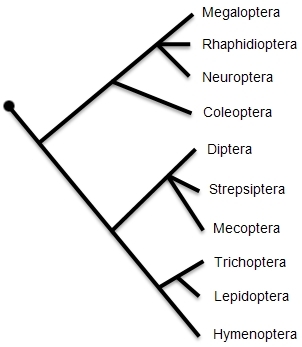
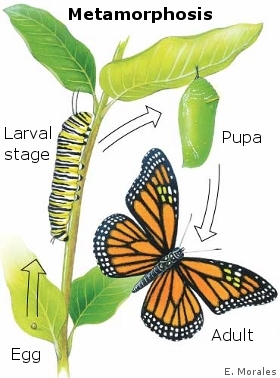
Holometabola synapomorphies:
Metamorphosis
Ocelli lacking in pre-adults
Number of stemmata (eye units) does not grow during different larval stages
Larval eyes disintegrate and the adult forms new ones
Larvae in pupa inactive
Larvae lacking wings
Diptera synapomorphies:
Halteres instead of hind wings
Sucking mouth
Mesothorax increased in size
Nematocera (paraphyletic group) have long legs and long antennae, whereas Brachycera (monophyletic group) have short antennae.
Diptera - Brachycera
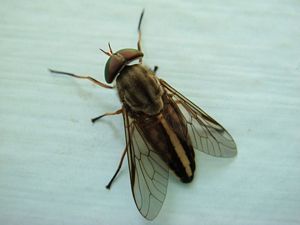 Fly
Fly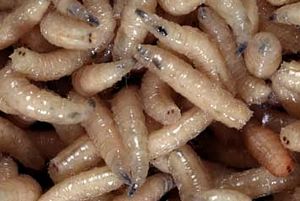 Maggots
MaggotsDiptera - Nematocera
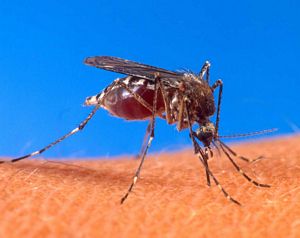 Mosquito
Mosquito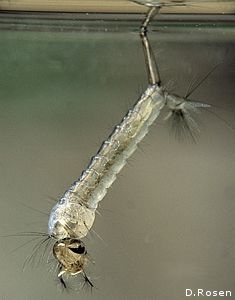 Mosquito
larvae
Mosquito
larvaeMecoptera
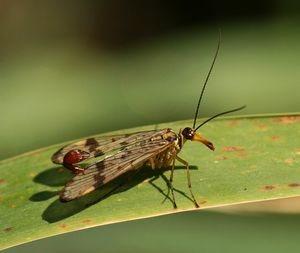 Scorpionfly
ScorpionflySynapomorphy:
Clypeus and subgenae increased in length
Mecoptera - Siphonaptera
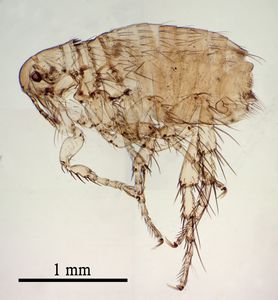 Flee
FleeSynapomorphies:
Sucking mouth
Lacks wings
Body flattened laterally
Strepsiptera
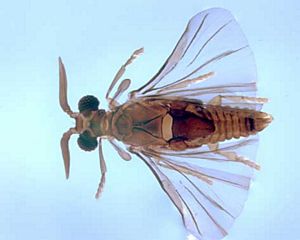 Twisted-wing parasite
Twisted-wing parasiteSynapomorphies:
Males: Halteres instead of front wings, special antennae and big ommatidia.
Females: Endoparasites with simple morphology.
Coleoptera
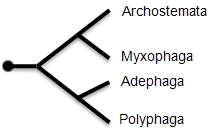
Coleoptera synapomorphy:
Elytra (sheath wings)
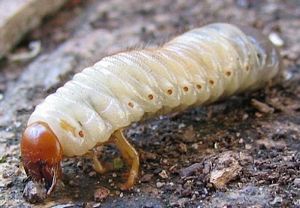 Beetle larvae
Beetle larvaeColeoptera - Polyphaga
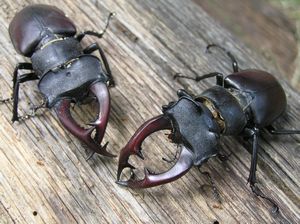 Stag beetle
Stag beetle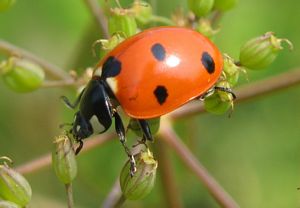 Ladybug
LadybugColeoptera - Adephaga
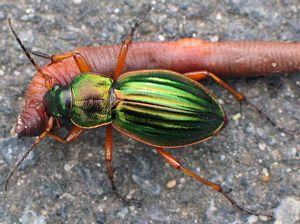 Ground beetle
Ground beetleColeoptera - Myxophaga
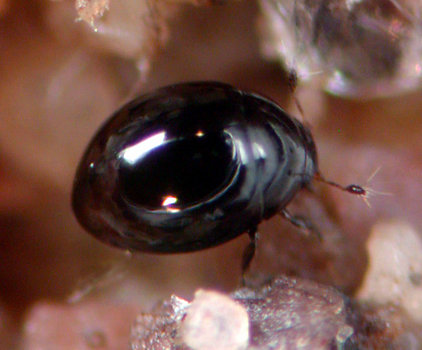 Bog beetle
Bog beetleColeoptera - Archostemata
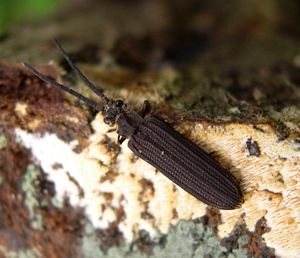 Tenomerga
mucida
Tenomerga
mucidaNeuropteridae synapomorphies:
Special ovipositor muscles
Specializations at wingbases
Neuropteridae - Neuroptera
Synapomorphies:
Larvae have sucking mouth
Wings with many ribs
Long simple antennae
Neuropteridae - Raphidioptera
Synapomorphies:
Prothorax increased in size
Long ovipositor
Neuropteridae - Megaloptera
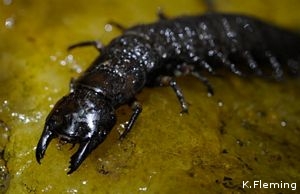 Hellgrammite
HellgrammiteSynapomorpy:
Larvae with gills
Amphiesmenoptera
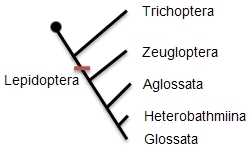
Amphiesmenoptera synapomorphies:
Females heterogametic
Wings with many setae
Wings can connect with jugum (overlapping lobe)
Larvae can produce silk
Many chromosomes
Amphiesmenoptera - Trichoptera
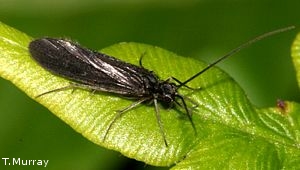 Caddisfly
Caddisfly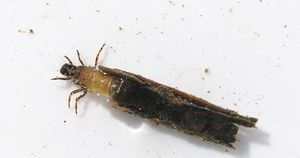 Caddisfly larvae
Caddisfly larvaeTrichoptera synapomorphies:
Aquatic larvae
Haustellum (sucking organ)
Eggs in gelatinous mass
Lepidoptera synapomorphies:
Setae modified, scale-like
Reduced number of ocelli
Adult females lack cerci
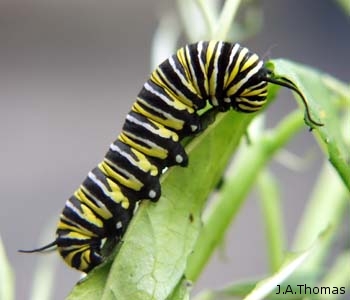 Caterpillar
CaterpillarAmphiesmenoptera - Lepidoptera - Zeugloptera
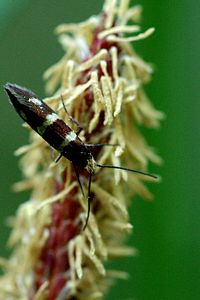 Archaic moth
Archaic mothAmphiesmenoptera - Lepidoptera - Aglossata
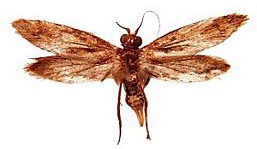 Agathiphaga
queenslandensis
Agathiphaga
queenslandensisAmphiesmenoptera - Lepidoptera - Heterobathmiina
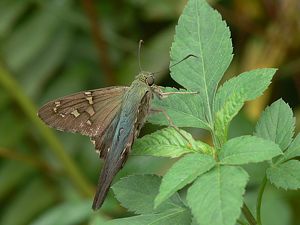 Heterobathmia
HeterobathmiaAmphiesmenoptera - Lepidoptera - Glossata
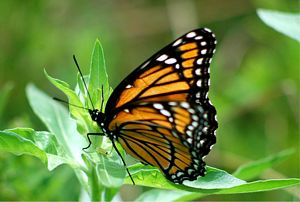 Butterfly
ButterflyHymenoptera synapomorphies:
Haplodiploid sex-determination system
Hamulus (hook-like setae on the anterior margin of the hind wing which interlock with the recurved posterior edge of the fore wing)
Maxillae + Labium forms a tongue
Propodeum fused together with thorax
Front wings/mesothorax bigger than hind wings/metathorax
Apocrita differs from Symphyta by having a so called wasp waist. This is clearly visible on the wasp and the ant, but not so much on the bumblebee.
Hymenoptera - Symphyta
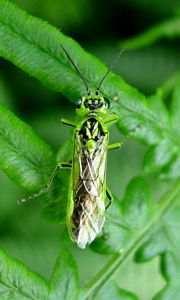 Sawfly
Sawfly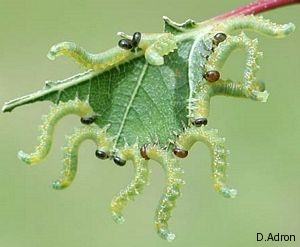 Sawfly
larvae
Sawfly
larvaeHymenoptera - Apocrita
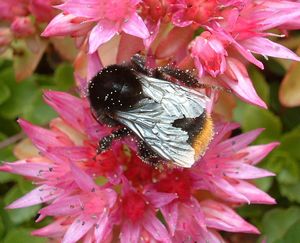 Bumblebee
Bumblebee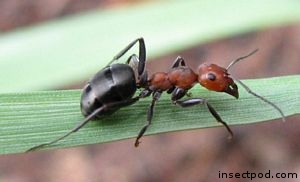 Ant
Ant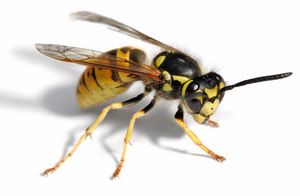 Wasp
Wasp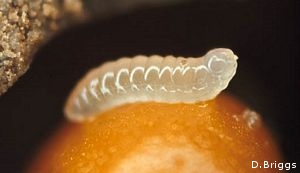 Bee
larvae
Bee
larvae